Behringer has renamed its upcoming polyphonic analog Synthesizer UB-Xa and uses the name of the original Oberheim OB-Xa, is that allowed but is that allowed?
In 1981 Tom Oberheim launched one of the most fat-sounding analog Polysynths on the market, the Oberheim OB-Xa. 40 years after its introduction, it should possibly come back this year. Not by the developer (Tom Oberheim) himself, but recreated by Behringer. They have been working on these since 2019 and now the final work seems to be going on.
In a new post this week, Behringer announced that 100 beta units had been built that will now go to testers. This is good news for everyone waiting for the replica. Something that may not all have been noticed. Behringer changed the name of the synth from UB-Xa to Oberheim OB-Xa. The well-known logo can be found on the right and the name OB-Xa on the left.
We’re now almost ready:-) 100 units have been produced, which will now go to our expert beta testers who all have an original unit for comparison.Once these synths have passed the in-depth testing procedure, full speed production will commence.We know it has taken much longer than we envisioned, but this is such a complex instrument that we wanted the take the time to get it perfect.People familiar with electronics know that recreating a legacy synthesizer is much more challenging than developing a modern instrument. Thanks for all your patience and support.
Behringer UB-Xa Vs Behringer Oberheim OB-Xa
Many readers are rightly wondering whether Behringer can rename the UB-Xa in Oberheim OB-Xa. Especially where there is already an Oberheim OB-Xa Synthesizer. However, the unwelcome news is yes he can but to me, it’s a shady move. This because he acquired the trademark rights for the name Oberheim last year.
As a reminder: after the original company filed for bankruptcy, the name Oberheim has been owned by the guitar brand Gibson since 1988. Later it was licensed to Viscount, an Italian brand that produced for example the OB-12 virtual analog Synthesizer. In 2019, Gibson announced they will return the Oberheim brand and trademark back to its creator, Tom Oberheim, as a gesture of goodwill. However, since the end of last year, the tide has turned. Behringer is the new owner of the name. You can found it also on the official MusicTribe website for some time now.
Trademarks
If you take a closer look at the trademarks under Oberheim, you can see that Tom Oberheim is still the owner of the brand Oberheim. MusicTribe (Behringer) tried to take over the name in 2018. In 2019, Behringer won a lawsuit against Tom Oberheim and was able take over the brand name. However, they have also the rights to the name Behringer Oberheim. So the name change of the synth clone would make more sense. Interestingly, Tom Oberheim has applied for the OB-Xa trademark last year. Probably to protect the name and this legacy. For this reason, it’s strange that Behringer renames the UB-Xa to OB-Xa.
Personal Impression

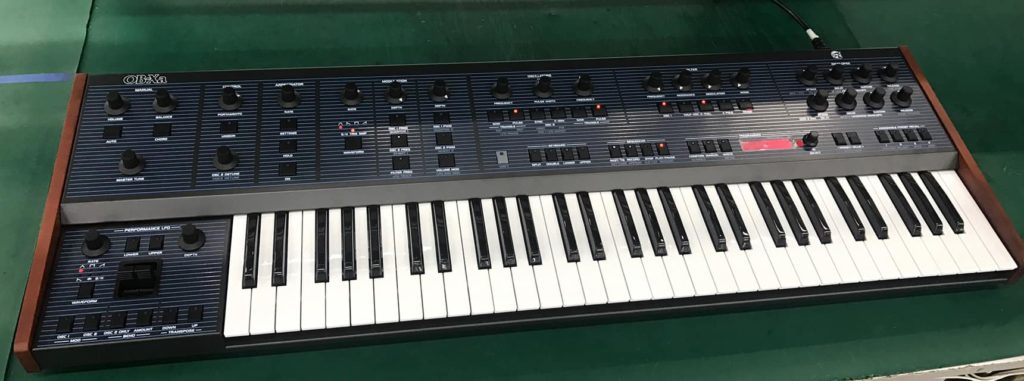
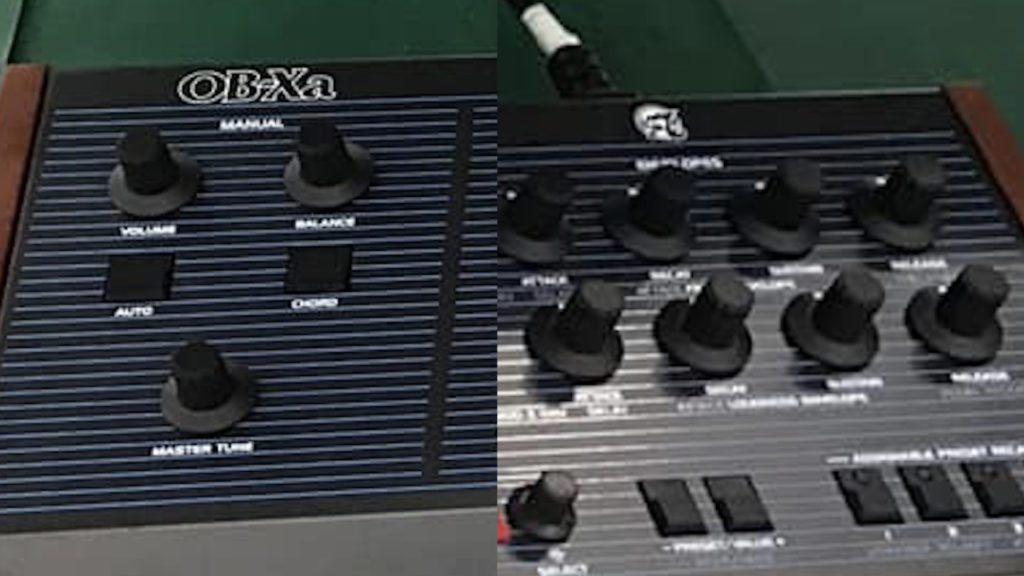
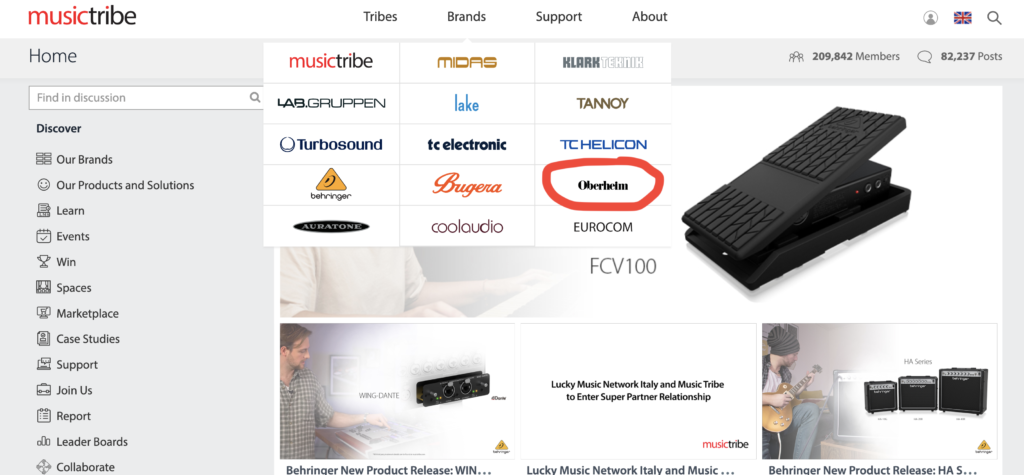
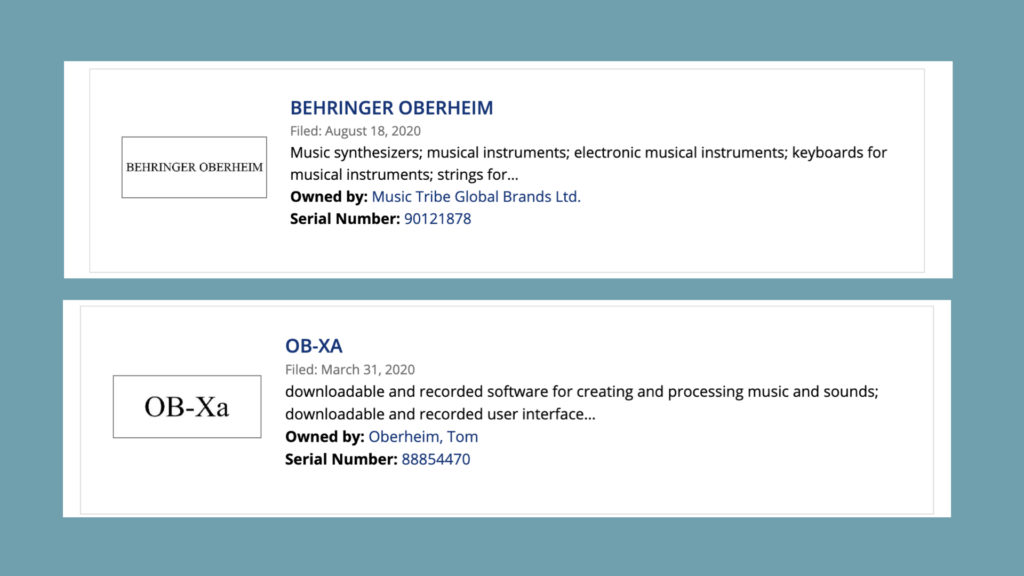
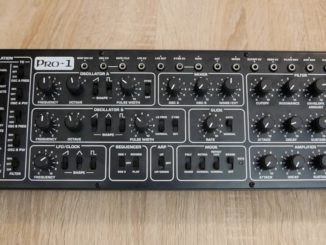
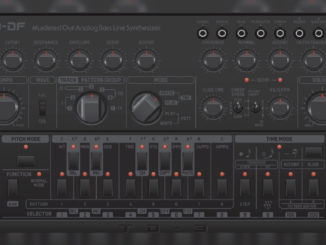
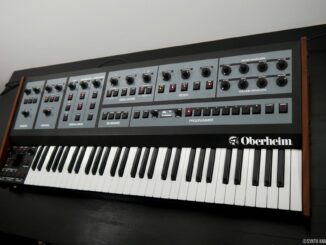
I agree with your article.
Initially I loved what Behringer did on the synth market.
Their corksniffer was to me the first ugly sign of behaviour.
Then their weak apologies was another bad token: I remember it sounded as if we, the audience, were to blame for misinterpreting their message. I was all a harmless joke… But perhaps it was just the marketing department that went out of league?
The bland copying of the Keystep showed there is more to it. That felt like a major blow in the face and made me take their BARP 2600 off my wish list. I bought the KARP Odyssey instead and the Cherry Audio 2600 VST. Very happy and proud with my choice.
Now this. A fourth incident in a short row. Behringer is getting insolent.
Their unethical (even if it is legal) use of someone else’s trademark is again a bridge to far. It ‘s the OB-6 for me now.
A real shame, cause I loved the way they started on the synth market, but now that’s over. Why couldn’t they just take pride in what made their synths sympathetic: recognizable, well sounding clones of vintage synths. Now I perceive Behringer as a company that no longer loves making synths, but considers the market as a battleground where you shoot opponents.
This isn’t a game, and I find it all very very offensive. I guess their attitude will backfire one day.
I am proud to own an OB-6, fantastic synth, and my hard earned money goes to two of my hereos.
Absolutely. Same here.
What he said.
Agree that Behringer have a questionable ethos & their reputation is quite poor from my perspective.
They are not very creative as a company but I suppose focusing on clones no other company is doing that.
They don’t have to spend money for R&D and innovation…. OK expect for a small number of synths like their Neutron and DeepMind.
I much prefer original indy companies like Dreadbox, Make Noise & Teenage Engineering etc.
Behringer will run out of things to clone quite soon?
Maybe we are completely wrong…
Behringer have a sense of integrity and have already made an agreement with Oberheim brand owner to which they will pay royalties for this new product.
That seems fair to me and I’m fine with that.
they didn’t this yet with any other cloned instruments (Pro-1, MS-20, SH-101…) So I don’t think
No, they’ll start going after small mom and pop synth makers. They have an army of imprisoned scouts on YouTube looking for gear to copy. If anything looks remotely interesting, they’ll flag it and move on to the next item until the whole market is gobbled up. Sad thing is: for the buyers, their circuit boards will start failing after 5 years as surface mount parts start falling off.
Behringer is clearly trolling and I gotta be honest I love it.
Creative or not, they give people what they want: Affordable and authentic analog synthesizers. I don’t think it’s really necessary to ask the question whether or not it is allowed to use the brand name, and the original name of the synthesizer, because, Behringer wouldn’t do it in the first place if it wasn’t. You can be assured that they have some lawyers on their pay role who handle the legal stuff.
You are probably right.
Instead of R&D and innovative, ground breaking original products they pay lawyers bills instead…
Wow, I’m impressed with that.
Moog Music today, is a new company with the rights to the name, the original Moog company changed it’s name over they years, and finally went under, some years after Robert Moog left.
Their Minimoog Model D, is a clone, at least as much as any Behringer synth (it even looks closer to the original, than any Behringer clone).
Robert Moog, when alive, thought that the new Minimoog should be the voyager, not a clone.
Sequential , is a new company, with the rights to the name. Dave smith is still involved, but in actual reality, it isn’t the same company that made the Prophet-5. Still, today, they have a new Prophet-5, with a similar look to the originals.
The Arp company went under, yet we see Korg products with the ARP brand, design, and name.
The objective way to look at it, is that is equally wrong or right, when any one else does it.
Korg however, managed to stay active as a company, (so did roland and yamaha), so when they make clones, they can call them re-issues, but it is/would still be confusing, with new products with the same name as old one, as they have been out or production for decades, so they would require the same kind of change of components as Behringer has made to their synths.
There are things that Behringer does, that can be criticized, but here they are doing the same thing as other companies, but they for some reason are treated differently.
Personally I would prefer they didn’t use Oberheim brand. But I don’t like how Moog and Sequential, play on nostalgia either, with their brand names (as they are new companies, and not the ones that had name to begin with), and to an even larger extent, when it comes to model names.
Yep, I hear what you’re saying.
However there is a difference in Korg/ARP, Moog, Sequential/DSI versus Behringer: the clones, reissues or whatever we call them, have been created with approval, by or as direct inheritance from their original makers.
In Behringer’s case they do so often in conflict with or without the original maker’s consent. I know they are not the only ones doing it, but then you should restrain yourself a bit. In their case they almost bragg about it, but creating this needless corksniffer incident, and copycatting the KeyStep (that has nothing to do anymore with nostalgia). I found the name ‘UB-Xa’ far more sympathetic and honest than ‘OB-Xa’, as it payed tribute to the original, without claiming to be it.
Behringer got the brand following a lawsuit, not because of Tom Oberheim’s approval.
What about the others then? The current Moog company is liaised to Bob Moog, the current Sequential company is liaised to Dave Smith. And as far as I know there was no fight involved to reclaim the Sequential Brand. Also the ARP reissues, although no involvement from Alan R Pearlman as he’s not around anymore, still could count on the assistance of David Friend, ARP’s co-founder.
Even the creation of the OB-6 under the Sequential brand is morally allowed, since Tom Oberheim was involved.
Behringer on the other hand follows the war-path : against Oberheim, against Arturia, against Peter Kirn. And that is a difference I can’t side with. And a path they didn’t need to choose.
You need to stay with facts.
If Behringer has the right to the name, that is no different, than any other company having rights to a name.
To approve, license, re-issue, there has to be a rights-holder, or the actual original company involved, and among the clone makers, Korg is the only situation where that is true, but only for the korg products, not the ARP products.
Moog got the rights to the name, via a legal process.
Dave Smith was given the Sequential name rights.
But that doesn’t matter, they are all sticker brands, as the actual original company no longer exists.
Keep in mind that Dave Smith, started using the prophet name on products, even before he had the rights to the sequential brand, so he was already relying on nostalgia. I never saw the point of calling those synths prophet anyway, and he had other products that sold fine, even without the name prophet on them, under Dave Smith Instruments.
It doesn’t matter if a person that once was involved with the original company, or the actual designer or founder of the original company of the original product is involved, if they aren’t the rights holders. Typically though, in those kind of collaborations, that person isn’t even that involved in the actual engineering.
Moog music decided to clone the Model D, after Robert Moog had passed, and his new take on the minomoog was the Voyager, also the owner structure of the company had changed, by your standards, I would define that as “not morally allowed”, but there isn’t such a thing.
I have no idea what the story is with the Swing. Arturia hasn’t licensed the degign, but I’m not sure it is protected even. But given the room for improvement on the Keystep, it is strange that they would decide to make something that similar, instead of addressing those issues, unless it is made by the same factory for Behringer at a really low price, but still though, given the small difference in price, I’m not sure why they would say yes to an offer from the factory. Still, it is allowed, it just doesn’t make a lot of business sense.
The Peter Kirn story, well that was really bad behaviour from Behringers part. Peter Kirn was far from fair to Behringer, but that does in no way justify their behaviour.
That is something one can be honestly upset with. I doubt it was anti-semitic though, as it doesn’t look that way for a person that isn’t jewish, but it was still bad.
However the only way that whole issue ties with the rights and morality of using known brands, that originally belonged to another company, is how Peter Kirn, like many others treated Behringer unfairly, by not judging other companies doing the same, in the same way.
You’re not addressing Behringer’s well-established track record of getting in trouble for copying even existing products, well before they moved into synths. They’ve settled out of court at least twice that I recall (meaning they didn’t LOSE in court, but they didn’t win either), and their lawsuits against Dave Smith didn’t help their image either.
In court, precedence matters, and in the court of public opinion, precedence and perception matter even more. So, though most of what Behringer the company has done is legal, it’s still bad form.
I’ve read SOME of Peter Kirn’s criticism and didn’t find it to be unfair, so I suspect we’re just seeing things differently there. Sooo…the mean-spirited poke at Peter was just more fuel for the “I Hate Behringer” crowd. Really not too bright on Behringer’s part. It also doesn’t help that Uli B. has sounded a bit insecure and whiny, based on his own rants posted in forums. He really comes across as the type who would rather have BAD publicity than no publicity at all.
And btw, I own some Behringer gear. He has made some decent stuff that I would happily endorse. It’s his well-established business tactics and all-too-frequent “spurts of asshole personality” that I take issue with.
And I can’t recall EVER running across that kind of insulting interaction with the public coming out of Moog, or Korg, or Dave Smith/Sequential. Could be they’re entirely staffed with assholes too, but if that’s true, they’re smart enough to not look like they are. Uli may be decent at making some great sounding synths (clones or not), but he ain’t too bright about managing his own or his own company’s image.
I won’t say I’ll never buy Behringer again, but I can truthfully say I’ve held up buying more recent products because he and his company’s practices really make himself and the company look bad.
Cheers…
Korg is the only company mentioned herein that are doing anything innovative. Roland and Yamaha are just rehashing the oast agaian and again as is their right. Tired of the “Behringer doesn’t innovate” pearl clutching.
In the scheme of business, its ethically legal, in the scheme of business that is.
I think the only people that have a problem with it are those of us that grew up appreciating the original units we all coveted. Personally, I am glad Behringer is reproducing these units and bringing them in reach to independent artist and hobby musicians. Is a Prophet 5 really worth $3500 new? I mean REALLY? Or the Prophet 10 at $4500? I am sure some of us can afford one but could a kid starting his band from nothing afford one? NO, just like I couldn’t in the 80s .. just like then, these units were priced for major labels and professional studios that were funded by major labels. So I praise Behringer for purchasing the trademark and keeping these instruments in reach of the next generation so they stop using plugins. If Tom and Rob Papen were smart they should be doing what Behringer is doing and making affordable gear.
What is a Prophet 5 or 10 really worth new? I’m curious to know how much the mark up is on stuff like this.
Those are the current costs for new ones, they’re expensive.
Difference between manufacturing a synth in the United States vs overseas also impacts the price.
In no way whatsoever is this a clone.
A clone would use the same components.
This is an emulation.
If even one surface cmount component or any form of DSP is present, this is not a clone.
Any company that builds any synth for any reason is a.ok with me.
So the guy behind Behringer, forget his name because he left no impression on me and looks like a crybaby. But this guy has no integrity or class. I hate him more everytime I hear about his punk, disrespectful antics and attitude. If he See’s this, “please please let me fight you”. I just want to smack you around like you do to people’s legacy and legends. Something you will never be known for. Just a disrespectful little, little, little, tiny boy
Yeah but I don’t really agree that there should be anything to have stopped Bob Moog from naming his company after himself second time around once he could and Dave Smith using the 1980s name of his company Sequential when it was given back by Yamaha after Yamaha owned it but didnt use it for about 30 years. I mean Bob Moog was Moog and Dave Smith is and always has been Sequential and he is still “a” or “the” principal designer, though even some of the mid 80s synths were actually designed by other members of the team, like the Prophet-VS, I believe. If they hadn’t gone belly up in the 80s, there would have been no gap. The gap was basically a long vacation. Basically the analogs they produce would probably have been as they are now even without the gap due to technological changes except the new Prophet 5 wouldn’t be a Rev4; it would be more like a Rev 24! 🙂
I can’t wait to not buy this.
behringer went to far this time. obviously playing with a certain reputation they worked on by dishing out cloned hardware, but at least with its own brands. the hardware was decent ok-ish to pretty good, mostly the ladder one, but this now…cmon behringer you really need that sort of stinky shit?
At the end of the day Tom went to NAMM every year and said he was going to do a SonOf4Voice, Eurorack versions of his SEMs, a standalone sequencer from the TVS, a Phaser Shifter and Ring Modulator modules and nothing came of it. Let’s just say Tom did get the name back….what does it matter if nothing is produced with the name? I appreciate what Tom has done but distributors have decided to drop carrying his products because of dozens of orders unaccounted for and myself personally having a poor experience purchasing an item from him, then as harsh as it sounds perhaps this is the only way we are going to get a new Oberheim product that isn’t vaporware.
This is beyond a shady move by Behringer. This is a direct slap in Tom’s face by narcissistic sociopath who soiled his own name with too many cheap knockoffs over the years.
This is not an Oberheim Ob-Xa nor will it ever be. It’s the equivalent of cheap knockoff Rolex some dude is selling on a street corner.
And for those citing Korg issuing synths under the ARP name, they have done so with the the approval of the living co-founder of ARP and with the approval of the Alan R. Pearlman foundation.
Nawh. If it sounds similar and is much cheaper than a vintage unit, then it’s great for new musicians. It’s not like Oberheim is coming out with new products. Chill.
Behringer can clone away, I love it!
How cringeworthy.
Behringer is NOT creating clones. They pretend to build clones with inferior components.
Why the heck you think they can sell at that price range?
If you still dont get it go into a studio and compare the real thing to the behringer copy
and stop falling for these fake online shootout.
The amount of people out there reporting on issues, problems or bugs with behringer gear
should be plenty enough cases for a class action lawsuite and that beside the issue with open theft of intellectual properties.
Behringer is cashing in on the hype by bluff and he is getting away with it by avoiding production outside of china.
It is amazing how many people are buying into that lies given all the great quality built alternatives out there.
Paul, please enlighten us on what superior components were used in these old synths that the modern surface mount components Behringer is using in their clones are inferior to.
Were the “high quality” components like the under-spec’d bridge rectifiers on the OB-Xa’s power supply? The leaky battery? How about the exploding tantalum caps? All the trimmer pots that need to be replaced?
Also, please tells us more about the fake online shootouts…
What is the open theft of intellectual properties you talk about?
Patents expire, and they have, so it is free for anyone who feel like it to make those products.
If you think about the arturia keystep, well I doubt they actually protected the design, and even if they did, that would be very specific, and kind of a pointless protection, as anyone would be able to make something very similar with just a small tweaks, which behringer did, no matter if they needed it or not.
Sure there are bugs and issues with Behringer gear, but that is true, with most music hardware and software makers. They offer 3 years of warranty, so at least one gets 3 years to discover issues.
What are all those alternatives with great build quality you talk about? Behringer has at least ok build quality, no worse than most other brands, that aren’t in the very high end of the market, and even then there can be issues. Moog even has issues with their top of the line Moog one.
The shootouts are very real, at least the ones I have seen.
And surface mount components versus through hole, isn’t a matter of quality difference, if you think that. They might differ in specification and tollerance, but that is also true with a lot of todays through hole components versus the ones used in the 70s and eigthies. And it wasn’t like synths were build with super high grade components, they were cheap typical components for the most part.
> However, they have also the rights to the name Behringer Oberheim.
This isn’t true. They’ve applied for the name, but it hasn’t come up for opposition yet, at least in the USA, where the big battle will be. When it does come up for opposition, it almost certainly will fail as a mark. This could be a very costly mistake on Behringer’s part.
OK, I have a Neutron.
It’s a well priced, original and innovative synth. Got me into modular etc. Great product and well designed. Nice filter, it can do dirty and bass until next Tuesday.
So why the hell cant these guys ‘design’ more stuff like the Neutron, Deepmind and keep on that honest path, building their reputation that way. Their engineers must have a low job satisfaction by cloning instead of taking inspiration from the older designs and coming up with something unique.
They are choosing a path (cloning with muscular legal bullying) that is highly questionable to the point where I feel embarrassed to admit my purchase.
Why “it’s a shady move”? Viscount also sold their crap synth with the Oberheim name, just because they had the right to.
I would say Gibson did a shady move not keeping their promise but make some money instead – seems they needed it.
It’s all not polite, but this is business. Amicability and morality where sacrificed long ago to the capitalism…
well, the difference is Viscount created something new out of it (OB-12) and not a clone of a product we all know and put the same name on it. Even, you can argue everything with capitalism, Tom Oberheim’s work should be respected and valued. Naming a synth OB-Xa doesn’t show me respect for the developer. They should name it: OB-Xa Replica or Clone to be accurate 😉
1996 the trademark Oberheim was registered for music hardware
2016 Music Tribe / Behringer asked for deleteing, because Gibson did not use the trademark for more than 5 years
Gibson claimed, they licensed the name to Arturia – but this was for software, not hardware
2019 the court rejected the objection of Gibson, so the trademark had to be deleted
Because MT requested the Name Oberheim in 2017 already, they are now the owners.
All legal. Gibson announced the give away of something they not longer owned. And they collected licence fees from Arturia for something they never owned (Trademark “Oberheim” for Software)!
Tom Oberheim still owns this full name though.
Dick move, perhaps. If it’s worthy, when and if it’s released(DS-80 as well),then we can all praise or lament it’s existence and decide if it should be respected or not.
I am a recent college graduate and musician/ producer. I am thankful for Behringer making recreations of the vintage synths at an affordable budget. I wish the companies that they’re “copying” off of would take note and do the same.
I have VSTs of The Model D, OB-XA, 808, and 909, but nothing beats having a physical version of each AT A PRICE THAT I CAN AFFORD!! I totally agree with everybody about the skepticism about the ethics involved with Behringer’s current pattern of recreating expensive vintage gear- especially how they’re using the Oberheim name on their OB-XA clone, but how else can people like myself have access to these vintage synths/ keyboards when Moog, Korg, and Roland still charge a premium price for their modern recreations of vintage gear?
I’ve got a Poly D, RD-8, and will get the UB-XA/OB-XA when it’s released because it works in my setup and my sound. If Roland, Moog, or even Dave Smith Instruments realized how big a market there was for more budget friendly recreations of their vintage gear remakes, I’d jump on it in a heartbeat. Yamaha, Roland, and Korg have been doing it for decades with their flagship synths, but why can’t they do the same for the vintage ones?
I can also afford to either replace or repair a $300-600 Behringer synth clone, but it’s getting harder to find affordable repairs for vintage gear, as a lot of older parts are becoming more scarce.
I understand the build quality on the clones aren’t nearly as solid as the old models, but I don’t care about that since I take care of my gear in the studio and on stage. I’ve got a Yamaha MODX, which is the Montage, but in a cheaper plastic body. It’s so much easier on my back lugging it around.
I can completely understand your thought. However, I mean companies like Korg, Yamaha … look forward and less backward in their development. The Minilogue xd is a powerful polysynth that shows how far technologies are today advanced: analog oscillators + digital oscillator & effects that can be exchanged by the user. How amazing is this. Personally, I don’t have problems if a company makes synths affordable like Behringer, even clone them but please respect the original developers. For me, respect and decency for the past are important points for clones.
Korg has cloned the MS-20 and the minikorg, and a couple of ARP products.
Yamaha were surveying users if they should clone the CS-80.
Roland has made several of digital emulations, without expanding on them.
Moog music cloned the Minimoog model D.
Sequential /Dave Smith cloned the Prophet 5.
So Behringer is hardly the only company looking at the past.
The XD is nice, but the digital engine, isn’t that user friendly, and make patch sharing and storing a bit complicated.
I think they should call it “Behringer OB-Xa” and the PPG clone “Behringer Wave”. That would be a good compromise. “UB-Xa” sounds so cheap and fake I can’t stand it. So, OK to use the products name (if it’s vintage and old) but not the manufacturer’s name in my opinion.
Yet another underhanded move by shady b-ear-ringer & to think being forum banned from gslutz for just stating the facts about these cheapo charlatans of the electronic instrument world all this false hype over something that’s not even a reality & who knows when it will be. ULI is the clone clown king and has pied-pipered his way to foolin’ many How or why this happened just reeks of banality,is a damn shame and exposes fickleness folks